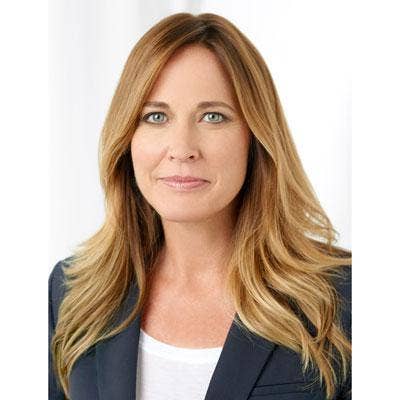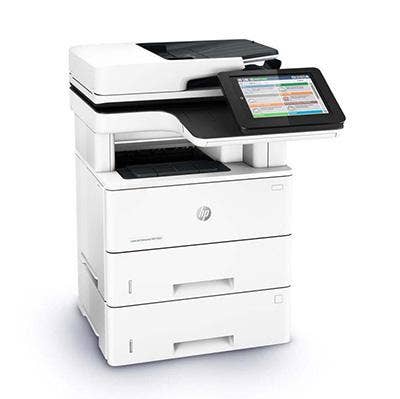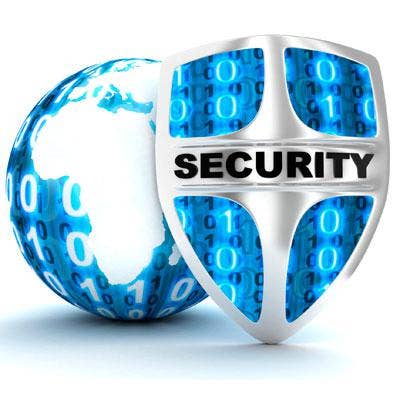HP Channel Chief Dismore On The Risk Partners Face In Making Shift From Transactional To Contractual, HP University, And The Sales Impact From HP's Security Offensive

HP Channel Chief Dismore On Making The Shift To Contractual Sales
Stephanie Dismore, HP's vice president and general manager, Americas channels, who is leading the charge to make Device-as-a-Service a reality in the channel, said partners staying pat with transactional product sales and not moving to the contractual as-a-service model are putting themselves at risk.
"The key message I would give to the channel community is you have to think of this shift as parallel paths," said Dismore in an exclusive interview with CRN. "You absolutely need to continue to streamline your transactional business because that absolutely is a significant amount of business, and I believe it will continue to be a significant amount of business. But the shift to contractual and as-a-service is happening."
Dismore, who drove the needle on HP's partner business over the past year from 80 percent to 87 percent of total sales, said partners must protect their ’current business" and then drive growth in the contractual side of the business.
"You can have a bifurcated model where you can absolutely operate transactional but move and shift to a contractual model, whether that is DaaS [Device-as-a-Service] or MPS [Managed Print Services] or Instant Ink in the consumer world," she said.

What is the next phase of reinvention?
The next phase is to let's continue to win in the core while changing how we go to market as the market changes. Let's understand the security threat. Let's make sure we are providing you innovation, tools, resources and programs so you can enable your sales force.
We have put together a Security Advisory Board to advise us within HP on how the threats are evolving and changing and what we need to do to build into our innovation. We are pulling together that Security Advisory Board so we can bring the latest and greatest information to our partner community that they can use with their sales force and in their sales tools to provide the right solutions to our customers and to really show the customers the value of the partner to bring in the right level of expertise, the right level of knowledge and to show the right solution.

Talk about HP University and the training that you are doing with partners.
We want to make sure that our partner community has the best partner training available -- not only from a product perspective, but across the board.
Whether you have a sales force fresh out of college and you need soft skills training, product training or solution and consultative training, we are going to provide that.
There is also opportunity to provide the right certifications across services and solutions, across DaaS and supplies, shifting from transactional to contractual sales.
We are able to create different tracks and modules within HP University so that no matter what the need is for your sales force. we can provide that.
At the end of the day, it is about people solving problems. If your sales force is enabled and trained and understands how to listen to customers and provide the right solution based on workflow, point of need and expectations, then you are going to win in the marketplace.

Are you going to provide new incentives around services sales rather than transactional sales?
The main tenet for us is what the channel tells us, which is, 'HP, you absolutely have to continue to make sure your programs are as simplified as possible. We cannot hire people to manage programs.' As you know, for the past two years we have been on a road toward simplification. We are going to continue with simplification and predictability so we are not going to change a whole lot in terms of what we have today because we want to make sure that we continue to be predictable.
However, to your point, we have changed our Partner First program this year to specializations driven by these market dynamics. So we have added DaaS, MPS, 3-D and Education so we can reward those specializations based on rebates. So you don't have to be a massive volume player to max out your rebate. If you are going to focus on contractual selling, you are going to get the highest level of reward as a Platinum partner in that specialization.

Talk about the challenges partners face in the wake of the omni-channel dynamic.
We have talked about the transformation of omni-channel and how the marketplace is changing and how new players are entering into the commercial landscape. The message to this partner community is you have to think of how you grow by protecting your current business and then grow with new business.
If you continue to operate in a transactional mode, your business is going to be at risk and it will be commoditized. Partners must transform processes and train your people so you can have a bifurcated model where you can absolutely operate transactional but move and shift to a contractual model, whether that is DaaS or MPS or Instant Ink in the consumer world. It is all about how do you do that and why.
Obviously, there is significant growth in services with higher ASPs and margins when you move from transactional to contractual and then you lock that customer in and take away the competitive threat from a low-priced leader.

Where are you seeing the greatest margin and profitability?
We always see higher profitability for both HP and partners when you are solving a problem versus selling a product. When you talk about why we are doing HP University, it is because we absolutely must move away from selling the product to solving the problem. That is a very different service level objective.
When we invest and train our sales reps and account managers to understand this shift, we will all see an increase in our balance sheets.

Is the channel moving fast enough to make the shift from transactional to contractual?
It is tough because it impacts all aspects of your business. It impacts your sales force and how you compensate your sales force. It impacts your P&L and your cash flow in the short term. The key message I would give to the channel community is you have to think of this shift as parallel paths. You absolutely need to continue to streamline your transactional business because that absolutely is a significant amount of business, and I believe it will continue to be a significant amount of business. But the shift to contractual and as-a-service is happening.

Talk about the contractual opportunity in the A3 copier replacement market.
The A3 [copier replacement] market is largely a contractual services market. That is a $55 billion market today. There is a huge opportunity as we look at the shift from transactional into contractual.
If you are largely a personal systems/systems integrator partner and you are able to understand the as-a-service play, there is no reason you can not only capture the personal systems as-a-service side but the print side as well. And vice versa: If you are an A3 partner and devices are moving to an as-a-service play, why not capture that PC business in a bundled solution with not only printing and supplies but also PCs?

How big is the opportunity with the as-a-service contractual transition for both partners and HP?
It is a significant opportunity. I don't want to minimize, though, the significance of the work that needs to be done from transactional to contractual because as I have said – it touches every aspect of your business. We all know the growth is in services, but it also protects your business.

How fast is the transition from transactional to contractual happening in the market?
It is happening at a very fast pace. We see new players coming into the market and simply playing at a price level that takes away all the value you provide. As a VAR or distributor, if you can provide that value and talk about services not only is it a significant opportunity for as-a-service but it protects you from the diminishing returns you face as just a low-priced provider.
The key thing here is if you are the customer you want your partner to solve your problems. In fact, the better thing is to prevent the problems from happening. If you think about the as-a-service play, there are things that we can do collectively that will enable that -- things like security.

Talk about how some partners are driving sales growth by focusing on security.
We had a partner recently implement a significant security initiative across their sales force. They talked to customers about security and the security threat and they had significant results. They drove this message with all their sales force, with their digital tools. We brought in our ’Mafiaboy' [Michael Calce, the chairman of HP's Security Advisory Board] to do training. We had spiffs and programs and incentives. It was one of the most exciting programs I have ever seen launched at one of our partners.

How can other partners take advantage of that type of program working with HP's Security Advisory Board?
When the thousands of partners at our World Partner Forum hear about our Security Advisory Board, HP University and the digital transformation marketing tools and assets, they have to understand that this is largely being done for the benefit of the partner community.
So when we are talking about the Security Advisory Board and how we are having experts in the security industry advise HP not only on product innovation, it means it is a benefit for you as our trusted and valued partner. You can leverage all these tools and information for your community, your business, your tools.
We have Mafiaboy and when you have an event and training and you need resources, that is what we are here for. We brought in our top trainers on security across not just personal systems and print as well and we saw their pipeline grow exponentially after one week based on the training, programs and solutions and innovations. Then we followed it up with spiffs, rebates, etc. That is something available to all our partner community.

Is the Security Advisory Board aimed at helping partners in the field drive sales growth?
Security is one of the most discussed topics among our partner community and customers. We all understand the threat our customers have and we have seen the breaches that have happened all over the world in the last 24 months. And we also know a large majority of those security breaches happen from endpoint devices whether that is from your printer, PC or your phone. As we saw this unravel we wanted to get out in front of it -- that is why we have developed the most secure solution across our entire platform.
We knew we needed to enable our partners to have that conversation not just about the endpoint device but across their entire solution. This Security Advisory Board is 100 percent put in place to not only make sure that HP internally is on the cutting edge of the issues and what is happening in the market to make sure that we have the right tools and solutions built into our innovation, but it is absolutely for the partner community to help them ultimately drive sales by giving them the best solution to the customer's biggest problem, which is security.

How big an impact could the Security Advisory Board have on the channel?
The key here for HP is we do not want to focus on the here and now. We are truly creating the future for our partners to say where is the market going, where are the concerns from customers headed, we want to provide our partners with the answers proactively, not reactively. That is what Partner Forum is all about. It is all about helping define the future for our partners in terms of what our customers want from you. They want security solutions. They want to understand how services can benefit them, what problems it will solve, how does it help them financially, how can they take Capex out of their balance sheets? What innovations and strategies are there from the channel that can enable them, and what is coming in the future? What is the next wave of digital transformation, the fourth industrial revolution and how is HP leading the way?

How big a differentiator is the security offensive and the Security Advisory Board versus the competition?
It is significant. We are winning in the marketplace based on our innovation – not just on our products but on complete solutions. That is driven by insights. One of the first things we obviously see from those insights on the commercial side is security is the biggest issue customers face.
When you talk about the Security Advisory Board and how it benefits the partner community, it is hugely significant because we will have the cutting-edge advice, knowledge and transformational input to drive our innovation and provide our partners with the right level of information to talk to their customers.
We grew 11.6 percent year over year [in the most recent quarter]. In commercial we grew 11.2 percent and the market declined at 2.7 percent. Why? Because of our partners and our engagement with them and their execution. That is all driven by the innovation in our solutions, and security is a huge catalyst of that and our Security Advisory Board is just the next wave of what we are doing.